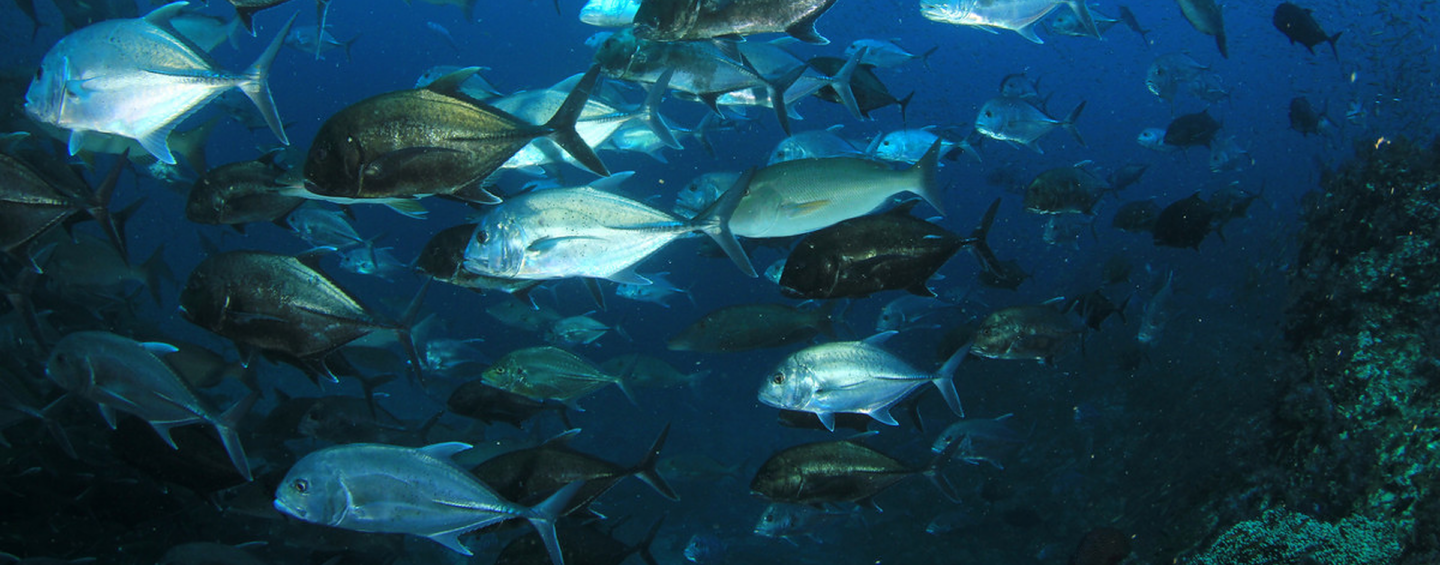The new year brought some good news for global fisheries sustainability. A paper by Hilborn et. al., published this month in the Proceedings of the National Academy of Sciences, shows that where fisheries are effectively managed and stock status has been assessed, fish stocks are improving. However, the study also finds that there are still many fish stocks which are not as well-studied and that, where the intensity of fisheries management is low, the status of fish stocks is generally poor or decreasing.
Using the RAM Legacy Stock Assessment Database, which covers 882 fish populations and represents nearly half of global reported wild-caught fish, the authors found a “clear relationship” between fishing pressure, management intensity, and changes in stock abundance. In fisheries around the world, changes in fishing legislation and introductions of management regulations based on scientific stock assessments have led to decreased fishing pressure and rebounding fish stocks. The paper concludes that, “in regions where fisheries are intensively managed, stock abundance is generally improving or remaining near fisheries management target levels.” And while this is great news in those fisheries, the caveat to these findings is that many of the remaining stocks lack data and thus remain without effective management. The authors argue that “[i]ncreased application of area-appropriate fisheries science recommendations and management tools are still needed for sustaining fisheries in places where they are lacking.”
These findings confirm what we at Sustainable Fisheries Partnership have found in our work with fisheries supply chain actors across the globe. Indeed, when we work with buyers to assess risk in their supply chains, we highlight data-deficient fisheries for improvements, just as we do for high-risk fisheries, since the lack of information so often correlates with poorly managed fisheries.
To address these large fisheries data gaps, there is an urgent need for better science and management in these undocumented fisheries, beginning with effective stock assessment. Through FishSource, SFP is working to help compile data from fisheries assessments around the world. According to Susana Segurado, SFP’s FishSource director and one of the authors of the new paper, “While there are many assessments that we have not yet managed to compile, there are also many stocks that are not assessed in any form, impeding effective management.”
The UN Sustainable Development Goals’ Target 14.4 and SFP’s Target 75 (T75) Initiative are highlighting the improvements that need to be made in this area. A major focus of T75 involves working with partners and stakeholders to implement effective stock assessment and management measures in the many small-scale and data-deficient fisheries that supply international markets. Our Latin American Reduction Fisheries Supply Chain Roundtable (SR) has made a commitment to fund a stock assessment improvement study for Chilean small pelagic fisheries. And in Indonesia, fishery improvement projects (FIPs) in small-scale snapper and grouper and tuna fisheries are focused on collecting data and submitting it to governmental authorities for management purposes.
In many cases, effective management needs to be driven through national and regional policy improvements, along with supply chain-specific or national-level fishery improvement projects (FIPs). A recent SFP report on Mexican fisheries found that “stock assessments are one of the things most commonly needed in Mexican fisheries,” Megan Westmeyer, senior improvements and strategy manager at SFP and one of the authors of the SFP report, noted. “That is why we chose to make stock assessments the subject of our first Mexican Fisheries Policy Brief.” Acting on this finding, nearly 20 Mexican and US seafood supply chain companies recently sent a letter to the Mexican government asking for their attention to this issue.
“The Hilborn paper underscores the importance of management, not only in maintaining stocks at healthy levels to allow for sustained fishing, but in recovering depleted stocks,” Segurado said. “It further reinforces the need for preventing stocks from becoming depleted in the first place. Recovery is a slow process, yields are lost, and fishing costs are increased, all of which have negative social and economic effects. As noted in the study, overfishing also has knock-on effects on other ecosystem components, and leads to increases in carbon emissions.”
Effective management is not just important for maintaining fish stocks. Strong science and management are also key to minimizing impacts from fishing on the remainder of the marine ecosystem, by reducing bycatch of other species, damage to seabed habitats, and changes to the food web, Segurado added.
At SFP, we work with global seafood supply chains to rebuild depleted fish stocks, reduce the environmental impacts of fishing, and ensure sustained economic livelihoods for fishing communities worldwide. This new study confirms what our improvement approach and more than a decade of partnership at SFP has shown: sound science and effective management can improve fish stocks, conserve the marine environment, and ensure a sustainable supply of seafood around the world.

